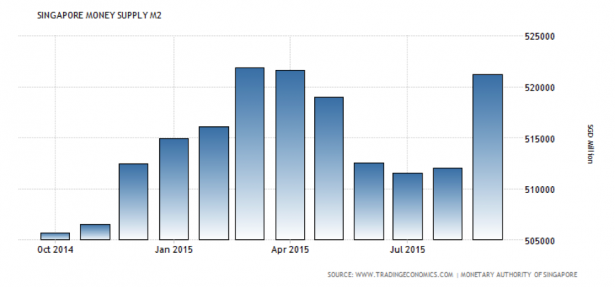 It’s not looking very good at Genting Singapore. After Genting reported a 91% year over year fall in earnings for Q2 back in August, this quarter’s year over year earnings came in 47% down. Just looking at those numbers can be depressing, but as often happens, breaking down the math reveals a different, more encouraging picture.
It’s not looking very good at Genting Singapore. After Genting reported a 91% year over year fall in earnings for Q2 back in August, this quarter’s year over year earnings came in 47% down. Just looking at those numbers can be depressing, but as often happens, breaking down the math reveals a different, more encouraging picture.
Before we get to that though, Genting Singapore’s recent decline does help confirm one thing. That is that the VIP segment is suffering everywhere, and not just in Macau. The VIPers are not simply moving from Macau to other venues, at least not yet. The VIP market is shrinking all throughout Asia. The bigger question is whether this is because they’re too afraid to gamble right now due to restrictions but will resume later, or whether the VIP gamblers as a class are shrinking. Either way, the cautionary tale here is that the VIP market is inherently unstable and long term, companies need to focus on mass market and treat VIP like a bonus. Much like top executive pay however, the big bucks usually come from the bonuses and not the base salary. Hard to escape this conundrum, really. It’s just a reality of the business.
In any case, the sky is not falling on Genting Singapore. Despite a further 47% fall in its bottom line this quarter, the numbers behind the numbers are not that bad. The absolute numbers are a profit of S$66.9M for Q3 2015 versus S$127.1M for Q3 2014, for an absolute difference of S$60.2M. The bad news is that revenue shrunk 5% year over year and the direct cost of sales increased despite those shrinking revenues. That means the cost of doing business is rising which is going to make growth harder going forward. The good news though is that this quarter included a S$53.7M higher year over year loss on derivative hedges and a S$52.7M higher loss on impairment of trade receivables. Together that accounts for a S$106.4M difference between this Q3 and last year’s Q3, while the absolute difference in earnings was only S$60.2M.
Genting Singapore’s loss on derivative hedging has to do with its attempts to protect its debt load with interest rate derivatives and those contracts expiring. In Genting’s words from the 2014 annual report:
These contracts entitle the Group to receive interest at floating rates on notional principal amounts and oblige the Group to pay interest at fixed rates on the same notional principal amounts, thus allowing the Group to raise these borrowings at floating rates and swap them into fixed rates.
This is good long term strategy, because banking on near zero interest rates is crazy. The fact that their derivative losses were steep this quarter only indicates that they are serious about protecting their debt. Later on this will prove very useful if they continue on with the strategy, though right now it is leading to losses. If the top executives at Genting are fans of traders Mark Spitznagel and Nicholas Taleb, they’ll keep taking the losses on these contracts until the big payoff. Spitznagel and Taleb’s Universa hedge fund usually loses money any given year, but when they win, they win big. The two made $1 billion on Black Monday August 24th, roughly 20% of their portfolio through just these kinds of hedging derivatives. That was the day the VIX exploded and the Nasdaq fell 5% in a day.
Of course Genting is not a hedge fund and shouldn’t be simply gambling on derivatives, but it all depends on your perspective. If they didn’t hold these contracts they’d be gambling on rates near zero for however long their debt is dated. The risk reward is worth it.
The other annoying loss is the impairment of trade receivables, which basically means losers didn’t pay up. This is the kind of thing that resolves itself over time as the casino builds up procedures to protect from deadbeats who are lousy at baccarat. Too bad casinos can’t put the term “deadbeat losses” on balance sheets instead of “impairment of trade receivables”.
While we can’t expect the deadbeat problem to go away completely, eventually the derivative losses will reverse and lead to gains. So assuming that the losers pay up more next quarter, let’s say by half, and not counting the contract losses, this quarter’s earnings are still up year over year.
As for the revenue shrinkage by 5%, that is a legitimate decline, but it is easily explained once you look at the chart below.

The same thing that was happening to the US money supply in June-July-August was happening in Singapore as well. It shrank, leading ultimately to Black Monday August 24th in the US, and to a slightly weaker gambling market in Singapore. Not everyone was affected, but the decline can be partly attributed to that, and clearly the decline is over for now.
There are other reasons to be optimistic about next quarter for Genting Singapore. Visitation volume to its attractions increased 17% year over year, and other revenue excluding gaming was up 10%. From a technical standpoint, it looks like a double bottom may be forming with the stock at S$0.69 a share. If the double bottom holds the long drawn out decline since 2010 may finally be ending.
One potentially positive asterisk here, and for all of Asia in general is the International Monetary Fund’s acceptance of the Chinese Renminbi as a reserve currency, which will make the Yuan more liquid throughout Asia and could encourage Chinese gamblers to go abroad more.